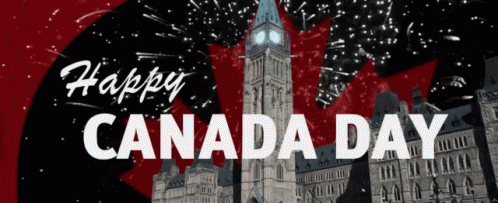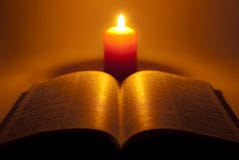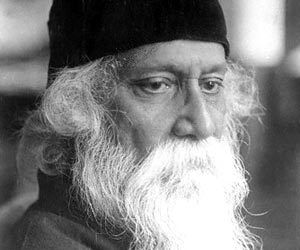
Canada Day (French: Fête du Canada) is the national day of Canada. A federal statutory holiday, it celebrates the anniversary of the July 1,1867, enactment of the Constitution Act, 1867 (then called the British North America Act, 1867), which united the three separate colonies of Canada, Nova Scotia, and New Brunswick into a single Dominion within the British Empire called Canada.
Originally called Dominion Day (French: Le Jour de la Confédération), the holiday was renamed in 1982, the year the Canada Act was passed. Canada Day celebrations take place throughout the country, as well as in various locations around the world, attended by Canadians living abroad.
The enactment of the British
North America Act, 1867 (today called the Constitution Act, 1867), which
confederated Canada, was celebrated on July 1, 1867, with the ringing of the
bells at the Cathedral Church of St. James in Toronto and "bonfires,
fireworks and illuminations, excursions, military displays and musical and
other entertainments", as described in contemporary accounts. On June 20
of the following year, Governor General the Viscount Monck issued a royal
proclamation asking for Canadians to celebrate the anniversary of Confederation, However, the holiday was not established
statutorily until May 15, 1879, when it was designated as Dominion Day,
alluding to the reference in the British North America Act to the country as a
dominion. The holiday was initially not dominant in the national calendar; any
celebrations were mounted by local communities and the governor general hosted
a party at Rideau Hall. No larger celebrations were held until 1917 and then
none again for a further decade—the golden and diamond anniversaries of
Confederation, respectively.
In 1946, Philéas Côté, a Quebec
member of the House of Commons, introduced a private member's bill to rename
Dominion Day as Canada Day. The bill was passed quickly by the lower chamber,
but was stalled by the Senate, which returned it to the commons with the
recommendation that the holiday be renamed The National Holiday of Canada, an
amendment that effectively killed the bill.
Beginning in 1958, the Canadian
government began to orchestrate Dominion Day celebrations. That year, then
Prime Minister John Diefenbaker requested that Secretary of State Ellen
Fairclough put together appropriate events, with a budget of $14,000.
Parliament was traditionally in session on July 1, but Fairclough persuaded
Diefenbaker and the rest of the federal Cabinet to attend. Official
celebrations thereafter consisted usually of Trooping the Colour ceremonies on
Parliament Hill in the afternoon and evening, followed by a mass band concert
and fireworks display. Fairclough, who became Minister of Citizenship and
Immigration, later expanded the bills to include performing folk and ethnic
groups. The day also became more casual and family oriented. Canada’s
centennial in 1967 is often seen as an important milestone in the history of
Canadian nationalism and in Canada's maturing as a distinct, independent country,
after which Dominion Day became more popular with average Canadians. Into the
late 1960s, nationally televised, multi-cultural concerts held in Ottawa were
added and the fête became known as Festival Canada. After 1980, the Canadian
government began to promote celebrating Dominion Day beyond the national
capital, giving grants and aid to cities across the country to help fund local
activities.
As the anniversary of Confederation, Dominion Day, and later Canada Day, was the date set for a number of important events, such as the first national radio network hookup by the Canadian National Railway (1927); the inauguration of the Canadian Broadcasting Corporation's cross-country television broadcast, with Governor General Vincent Massey's Dominion Day speech from Parliament Hill (1958); the flooding of the Saint Lawrence Seaway (1958); the first colour television transmission in Canada (1966); the inauguration of the Order of Canada (1967); and the establishment of "O Canada" as the country's national anthem (1980). Other events fell on the same day coincidentally, such as the first day of the Battle of the Somme in 1916—shortly after which Newfoundland recognized July 1 as Memorial Day to commemorate the Newfoundland Regiment's heavy losses during the battle-and the enactment of the Chinese Immigration Act in 1923—leading Chinese-Canadians to refer to July 1 as Humiliation Day and boycott Dominion Day celebrations until the act was repealed in 1947.
As the anniversary of Confederation, Dominion Day, and later Canada Day, was the date set for a number of important events, such as the first national radio network hookup by the Canadian National Railway (1927); the inauguration of the Canadian Broadcasting Corporation's cross-country television broadcast, with Governor General Vincent Massey's Dominion Day speech from Parliament Hill (1958); the flooding of the Saint Lawrence Seaway (1958); the first colour television transmission in Canada (1966); the inauguration of the Order of Canada (1967); and the establishment of "O Canada" as the country's national anthem (1980). Other events fell on the same day coincidentally, such as the first day of the Battle of the Somme in 1916—shortly after which Newfoundland recognized July 1 as Memorial Day to commemorate the Newfoundland Regiment's heavy losses during the battle-and the enactment of the Chinese Immigration Act in 1923—leading Chinese-Canadians to refer to July 1 as Humiliation Day and boycott Dominion Day celebrations until the act was repealed in 1947.
Although Canada existed prior to
1867, within both the French and British empires, Canada Day is frequently
referred to as "Canada's birthday", particularly in the popular
press. This is a misnomer, as Canada Day is the anniversary of only one
important national milestone on the way to the country's full independence,
namely the joining on July 1, 1867, of the colonies of Nova Scotia, New
Brunswick, and Canada into a wider British federation of four provinces (the
colony of Canada being divided into the provinces of Ontario and Quebec upon
Confederation). Canada became a "kingdom in its own right" within the
British Empire named the Dominion of Canada.Although
still a British colony, Canada gained an increased level of political control
and governance over its own affairs, although the British parliament and
Cabinet still maintained political control over certain areas such as foreign
affairs, national defence, and constitutional changes. Canada gradually gained
increasing independence over the years, notably with the passage of the Statute
of Westminster in 1931, until finally becoming completely independent with the
passing of the 1982 Constitution Act which served to fully patriate the
Canadian constitution.
Some Canadians were, by the early
1980s, informally referring to the holiday as Canada Day, a practice that caused some controversy: Proponents argued that
the name Dominion Day was a holdover from the colonial era, an argument given
some impetus by the patriation of the Canadian constitution in 1982, and others
asserted that an alternative was needed as the term does not translate well
into French. Conversely, numerous politicians, journalists, and authors, such
as Robertson Davies, decried the
change at the time and some continue to maintain that it was illegitimate and
an unnecessary break with tradition. Others claimed Dominion was widely
misunderstood and conservatively inclined commenters saw the change as part of
a much larger attempt by Liberals to "re-brand" or re-define Canadian
history. Columnist Andrew Cohen called Canada Day a term of "crushing
banality" and criticized it as "a renunciation of the past [and] a
misreading of history, laden with political correctness and historical
ignorance".
Under the federal Holidays Act.Canada Day is observed on July 1, unless that date falls on a Sunday, in which case July 2 is the statutory holiday. Celebratory events will generally still take place on July 1, even though it is not the legal holiday. If it falls on a Saturday, any businesses normally closed that day will usually dedicate the following Monday (July 3) as a day off.
Composed by Sanjida Rumi-
http://www.alokrekha.com







 লেখনীর সূত্রপাত শুরু এখান থেকে
লেখনীর সূত্রপাত শুরু এখান থেকে 
















0 comments:
Post a Comment
অনেক অনেক ধন্যবাদ